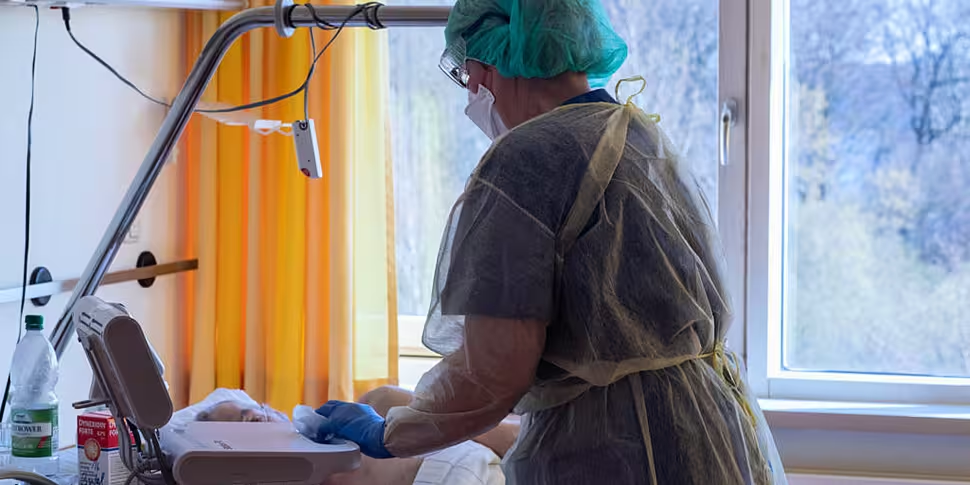The HSE's Chief Clinical Officer is warning there could be up to 3,000 COVID-19 hospital admissions by the end of the month if the current growth rate continues.
Dr Colm Henry says if this plays out, it will result in the health system being overrun.
673 patients are currently being treated in hospital for the virus, with 56 people in ICUs.
Yesterday saw a record 3,394 new cases of COVID-19 confirmed in the Republic, with four further deaths also reported.
Quoted in today's Sunday Independent, Dr Henry has described the situation as "grave" and has pleaded with people to adhere now more than ever to public health guidelines.
Intensive Care Physician at University Hospital Limerick, Dr Catherine Motherway, said the surge in admissions is beginning to impact critical care and that the health system will not be able to cope if hospitalisations reach projected levels.
Speaking on Newstalk Breakfast with Susan Keogh, Dr Motherway agreed that the system is coming under unprecedented strain but that "we are not powerless".
"As a nation, we can actually do something to help our health system and to allow us to provide healthcare for everybody with COVID and without COVID," she said.
This can be done by "fully engaging" with NPHET's recommendations and adhering to public health guidelines.
She added that while the current situation with the virus is "very overwhelming", we can slow its transmission if people get behind the advice.
"The health system can't stop it, people can stop it," she added.
Vacant ICU beds
Dr Motherway said there has been a doubling of people with coronavirus in intensive care in the last week, with more people expected to be admitted to ICUs as hospitalisations increase.
There were 48 vacant ICU beds nationwide yesterday, she stated, with the country's hospitals having 30 more beds than during the initial outbreak.
She said: "At the moment, we still have vacant beds in the ICUs, they are coming under pressure.
"The numbers that really matter in predicting the pressure are the number of people hospitalised, we expect about 10-15% of people in hospital to require critical care.
She said this proportion stood at around 9% during the second wave.
"It is difficult to run a healthcare system with COVID because it makes it less efficient," she added.
Dr Motherway added that Dr Henry was "quite right" to warn people about the possibility of high levels of hospitalisations if exponential growth of the virus continues as healthcare "is a finite resource".
"In a pandemic, there is even less healthcare there than you think because of its effect on staff who are also human and get the disease," she said.
"The only thing I can say, the only thing that's going to fix this, is public health measures and long-term, the vaccine which is being rolled-out as we speak."









